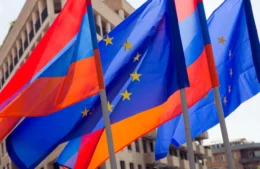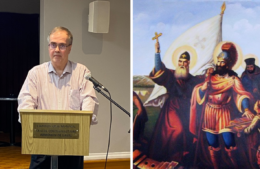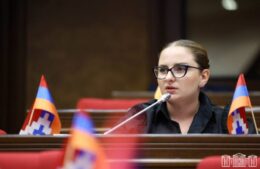Turkey to Return Only Meager Portion of Seized Properties
- (0)
Representatives from non-Muslim organizations in Turkey have announced that they have received a positive response for only 16 percent of the applications they made for the return of their properties seized by the state in the first half of the 20th century, Today’s Zaman reports, quoting Taraf daily.
Recent remarks by Prime Minister Recep Tayyip Erdoğan, saying his government has returned properties that in total valued $2.5 billion to non-Muslims, has brought the issue of property seized from Turkey’s minorities back on the nation’s agenda.
In 2011, Erdoğan’s ruling Justice and Development Party (AK Party) government adopted a decree to return all confiscated immovable property belonging to minority organizations in Turkey.
According to the decree, minority organizations are able to reclaim real property they had declared back in 1936. All real property, cemeteries, and fountains will be returned to their rightful owners. Immovable property currently belonging to third parties will also be paid for.
The 1936 Law on Foundations aimed to control non-Muslim organizations by placing them under the guardianship of the Directorate General for Foundations (VGM).
Since 2011, non-Muslim groups have applied to the VGM demanding the return of 542 properties. However, they have been unsuccessful in repossessing most of their seized property over the past two years.
In remarks to Taraf, Laki Vingas, head of the Minorities Foundation, explained, “One hundred and sixteen minority foundations have applied for the return of 542 properties, but only 253 properties have been returned. Applications for the return of 829 seized properties were rejected. No assessment has been made about the situation of 460 properties. With regard to 18 properties, which were acquired by third persons, a decision was made for compensation to be paid,” adding that only 16 percent of the applications have been responded to in the affirmative.
According to Vingas, the process concerning the return of seized property belonging to non-Muslims will be concluded within three months and the rate of repossession will remain at 25 percent at most.
With regard to the rejected applications, Vingas said rejections mostly happen due to missing documents and failure to determine the exact location of the property, adding that some minority foundations have taken legal action concerning their rejected applications.
Şahin Gezer, a member of the real estate commission of the Turkish Armenian Patriarchate, told the daily that he finds the figure cited by Erdoğan exaggerated, adding that if all the seized property of non-Muslim foundations had been returned, only then would the value equal $2.5 billion.
Voicing his disapproval of the slow progress in the return of seized properties, Gezer said, “The process is running very slowly. The state knows better than we do what property was ours and what was not. The documents that the state demands from us are documents that we must acquire from the state itself. But we cannot get these documents from most institutions; the documents we want are covered-up secrets at the end of the day. When we cannot get these documents, our applications are rejected and we cannot prove that that property was ours.”
The Diyarbakır Surp Giragos Armenian Church Foundation is another non-Muslim foundation, most of whose applications for the return of seized property were rejected.
Foundation head Vartkes Ergün Ayık told Taraf that they applied for the return of 190 properties to the foundation but that only 17 have been returned to them.



















